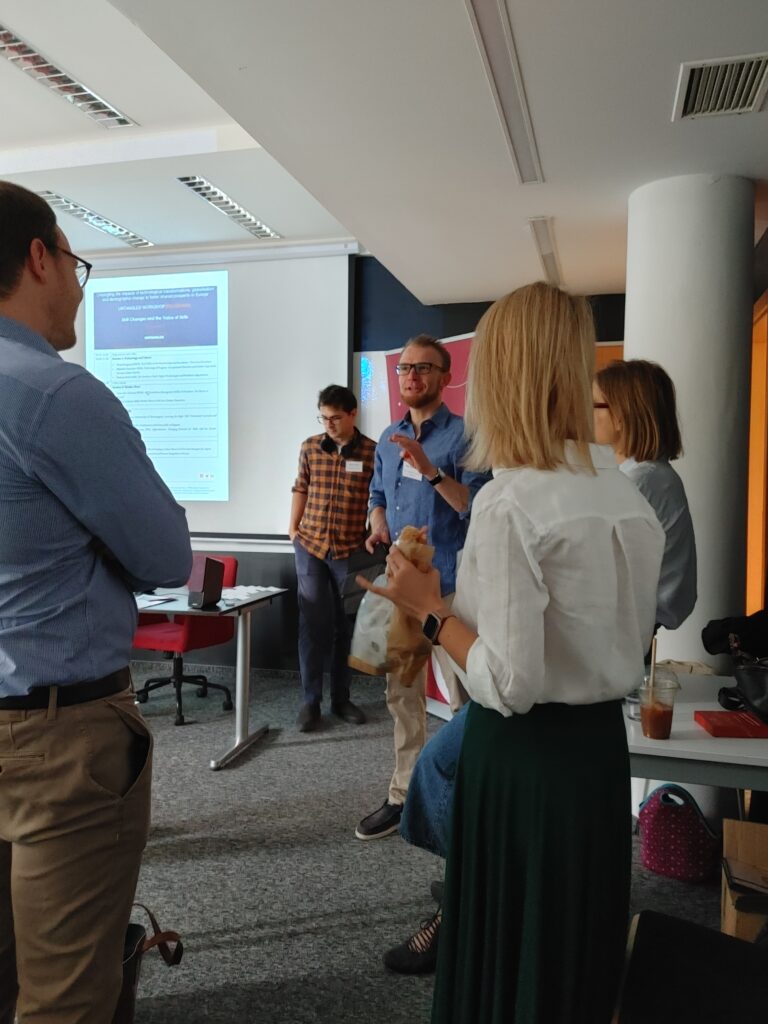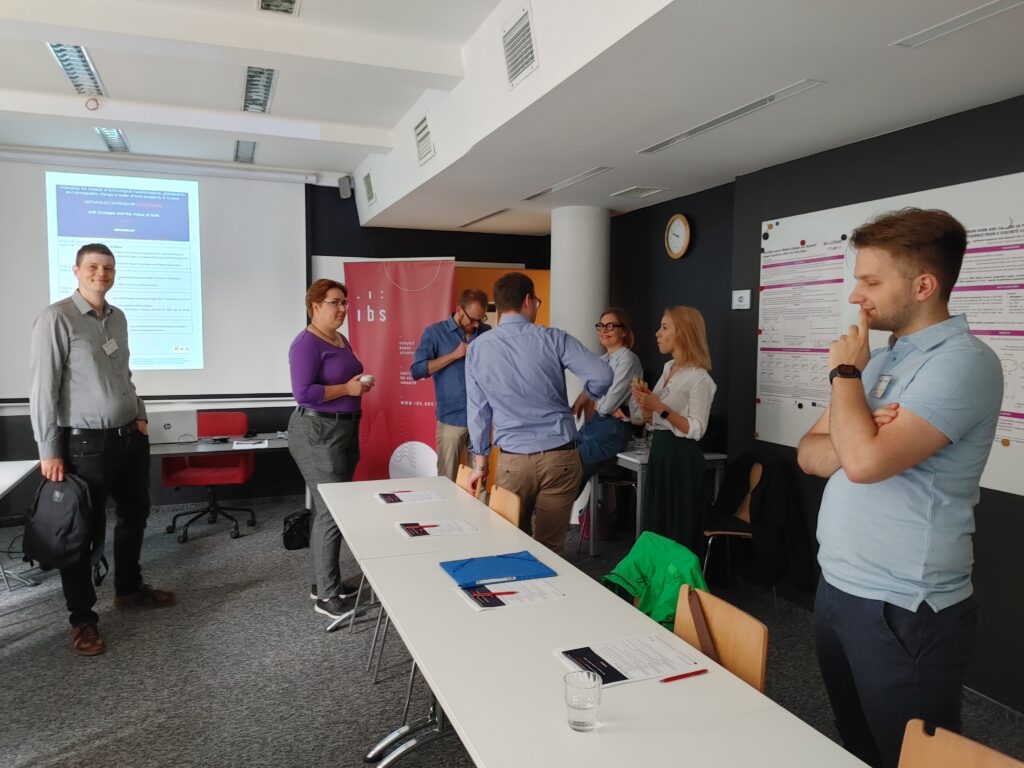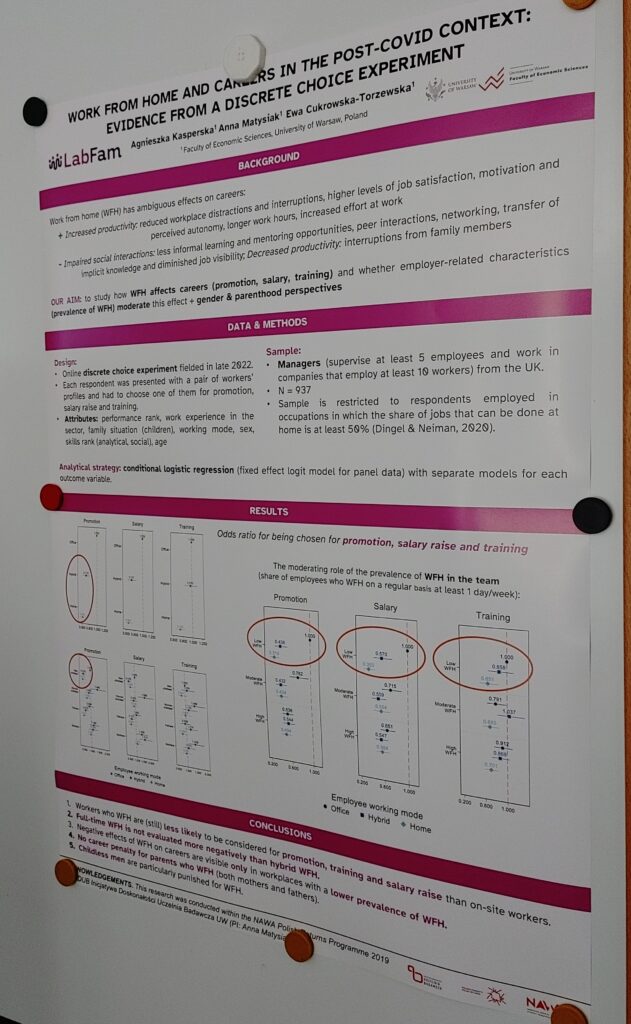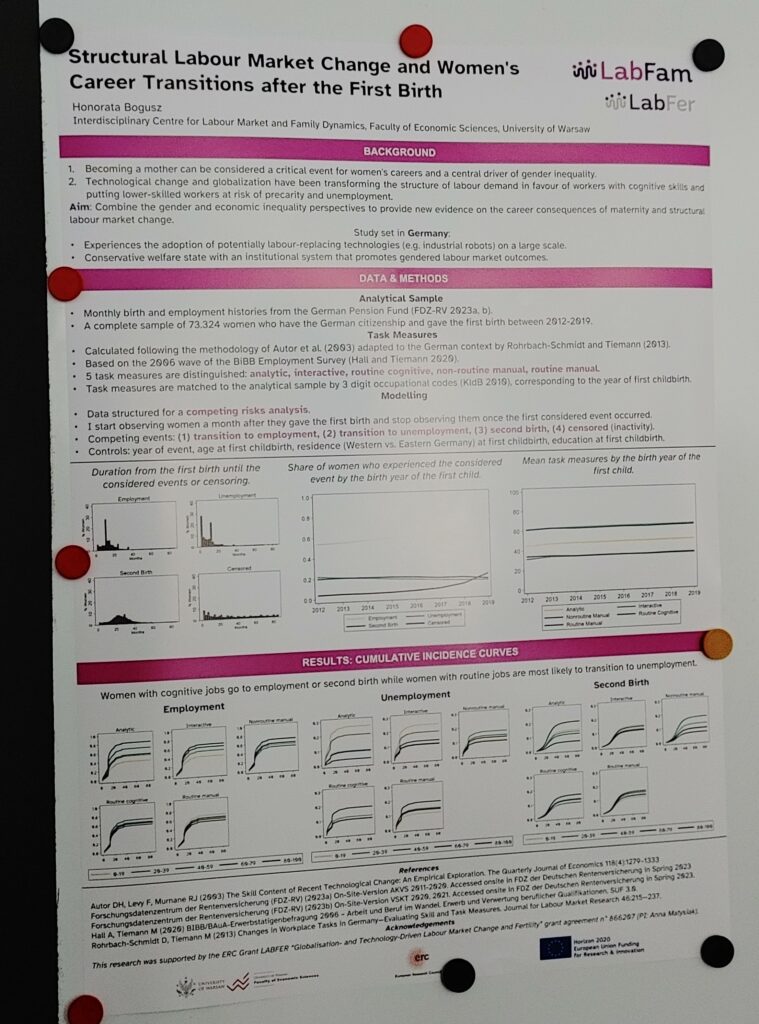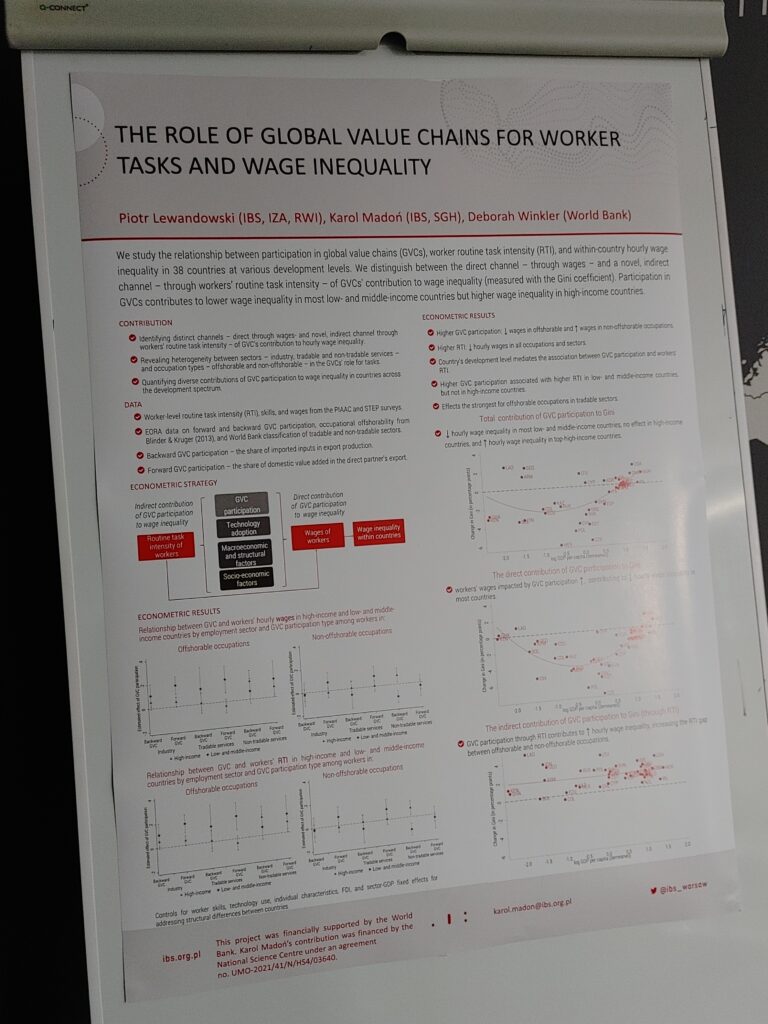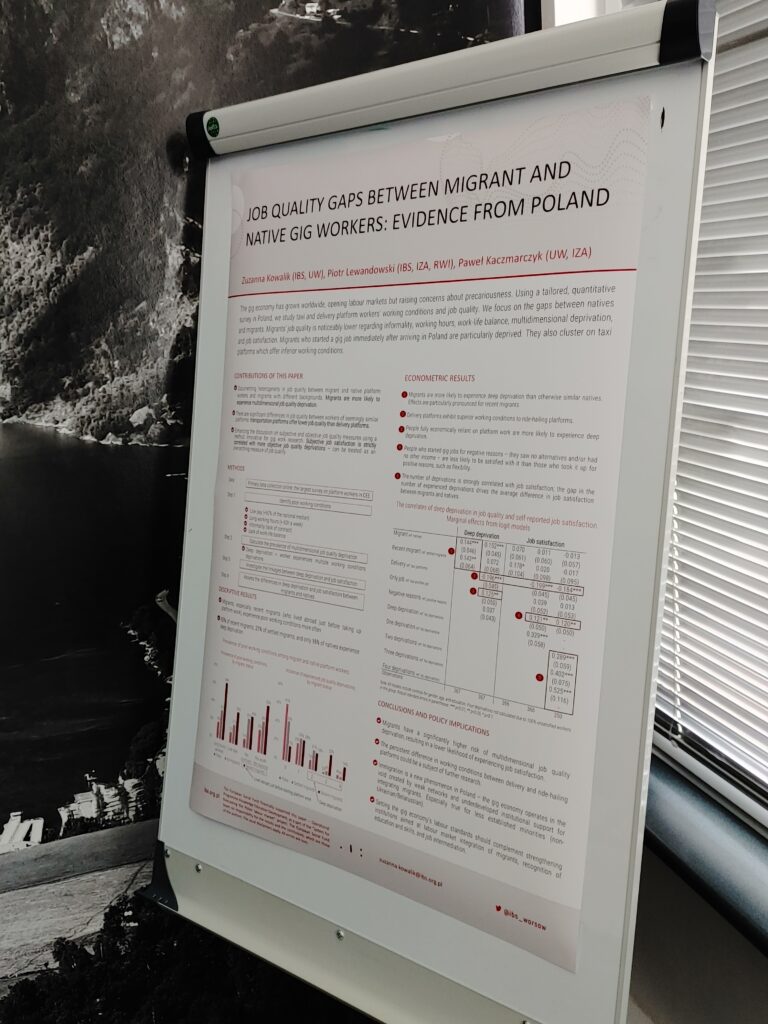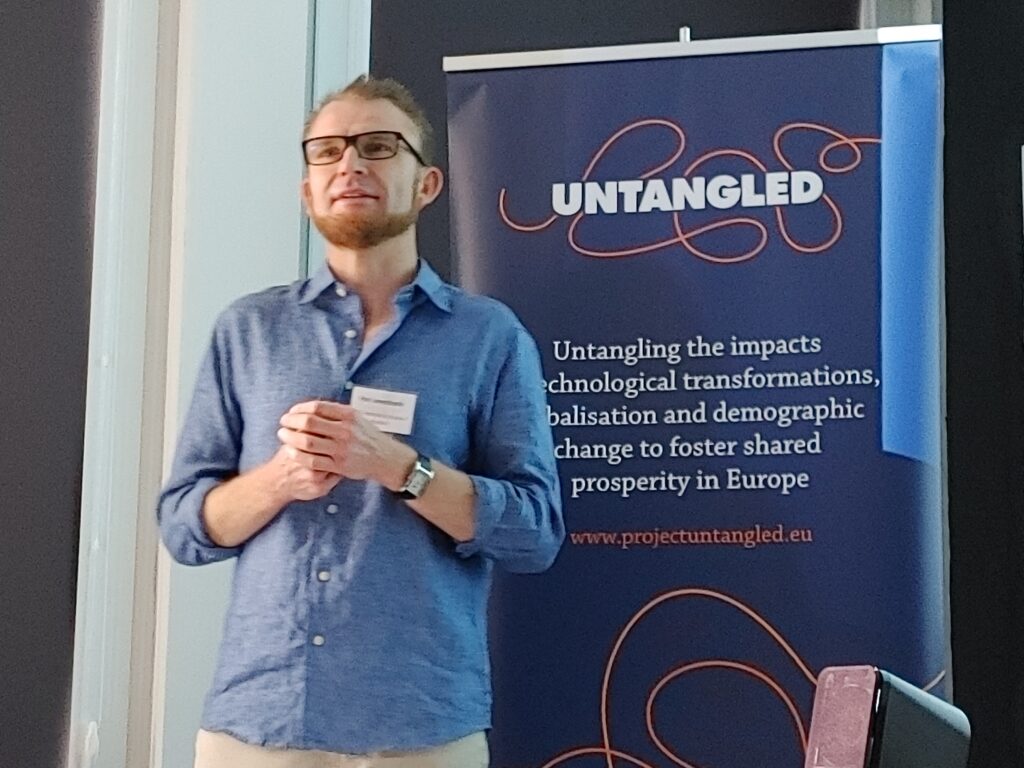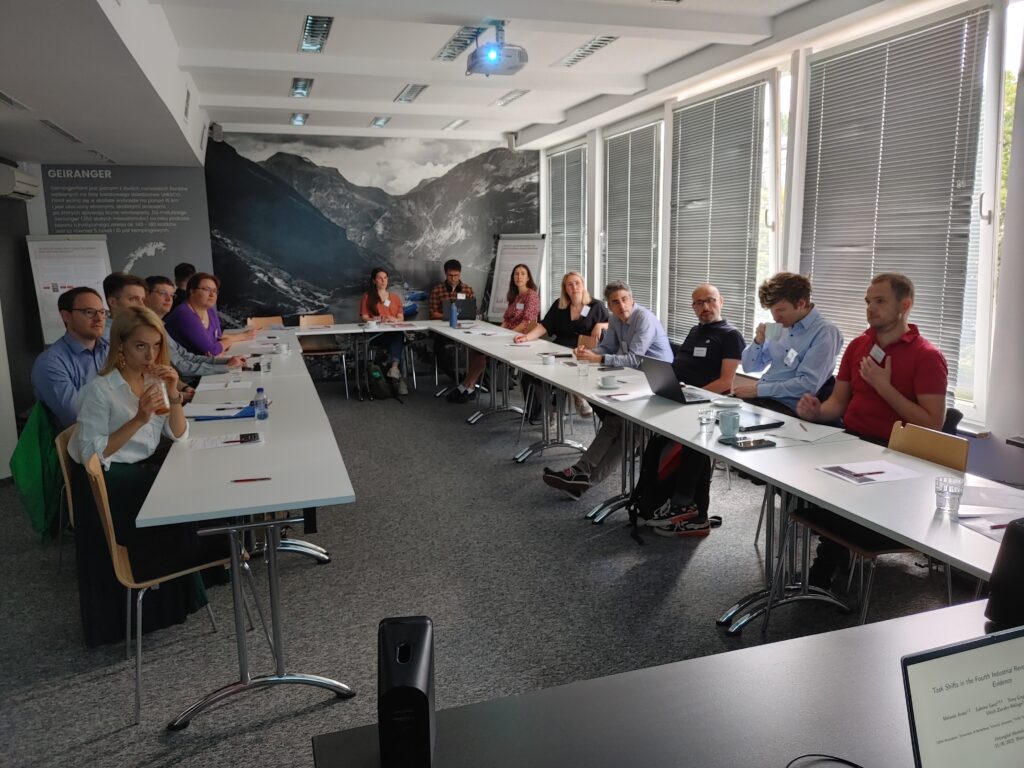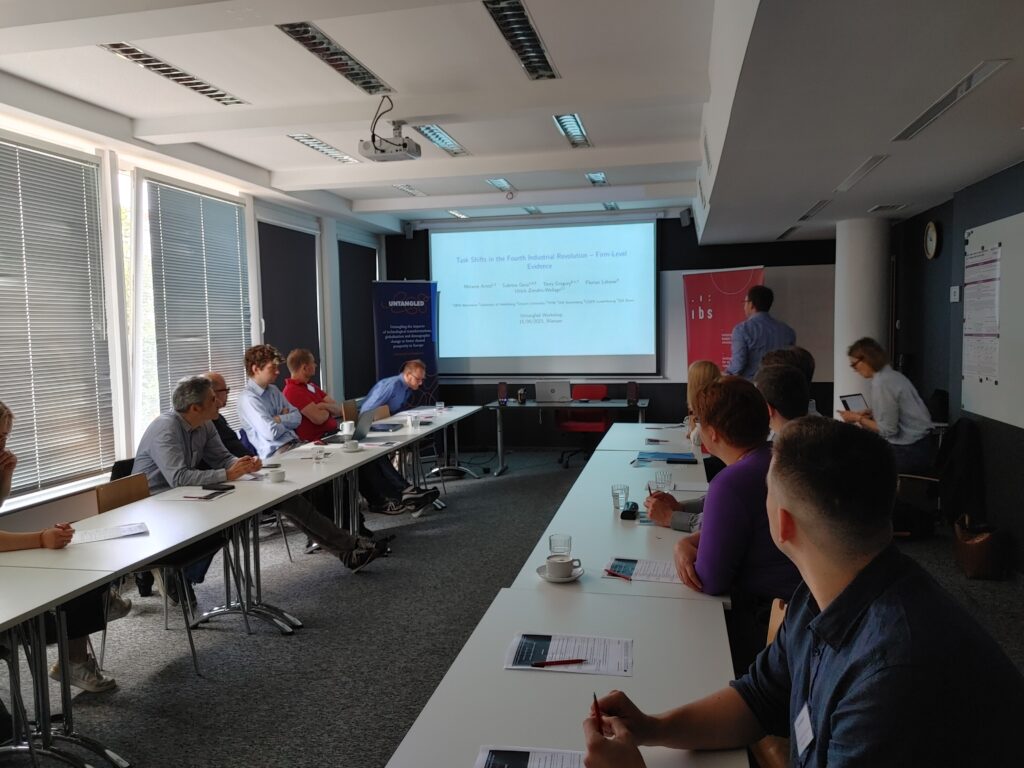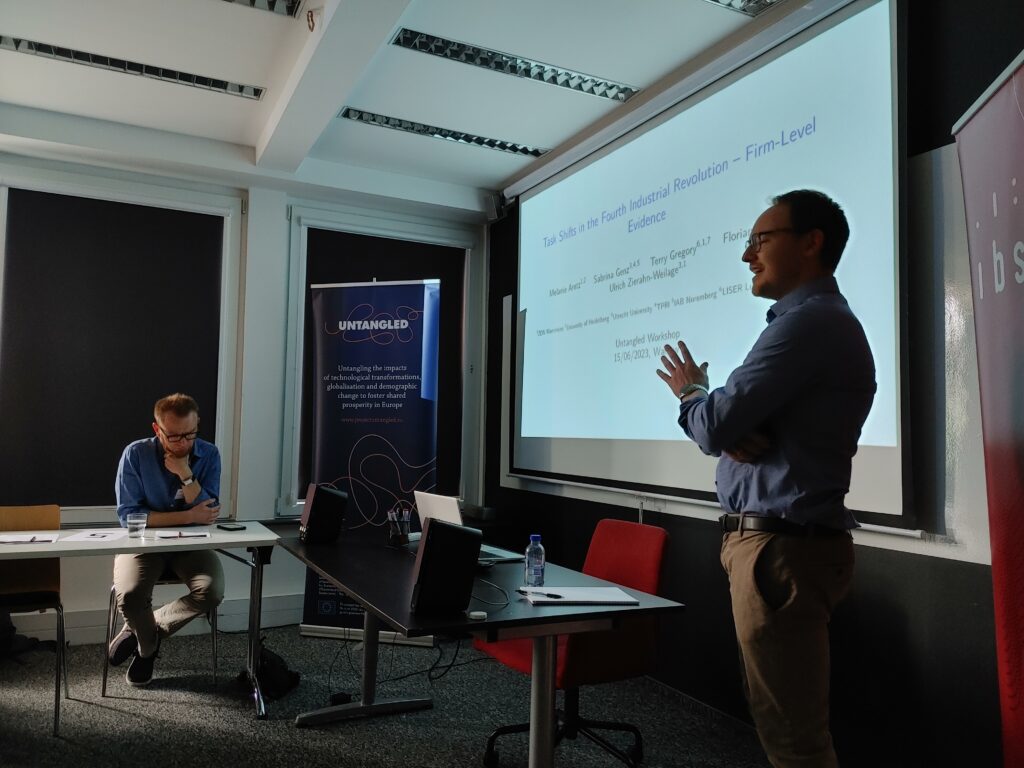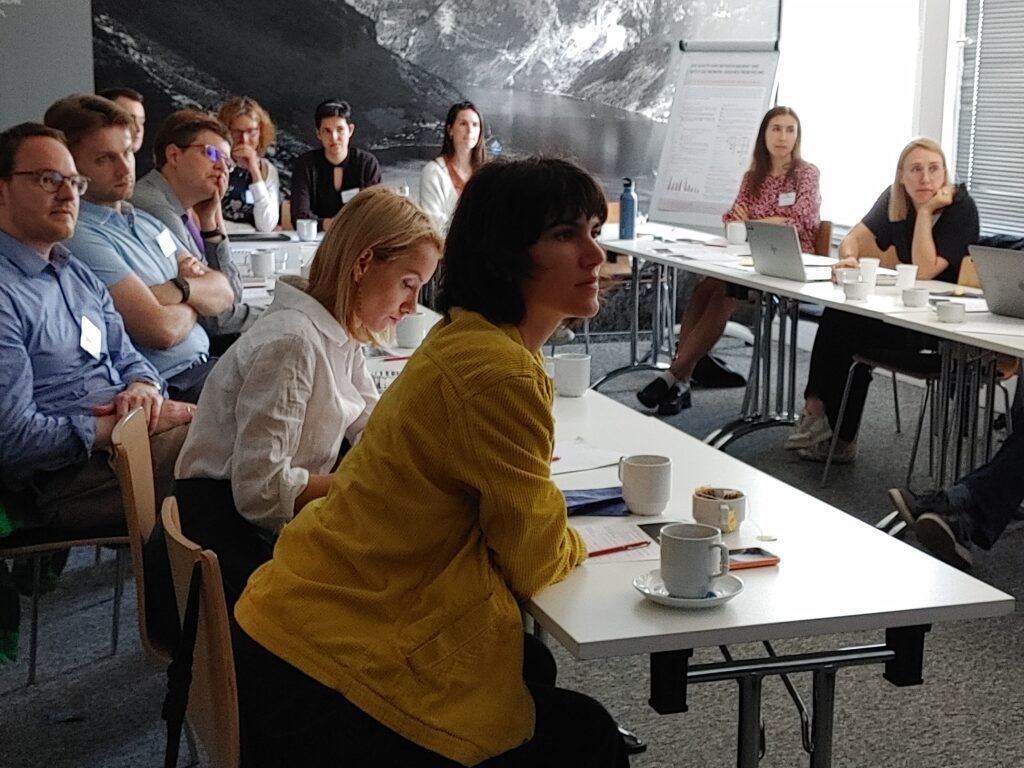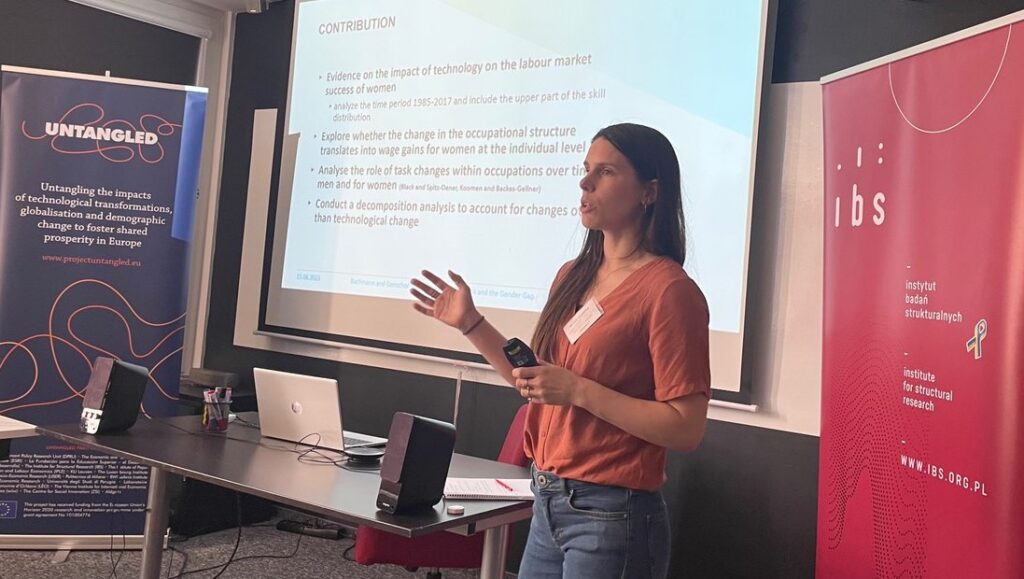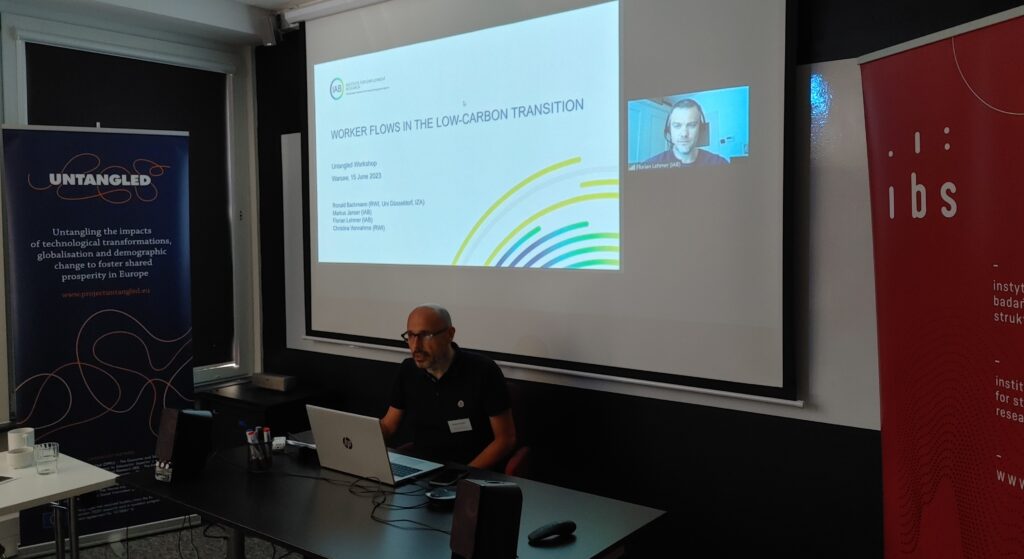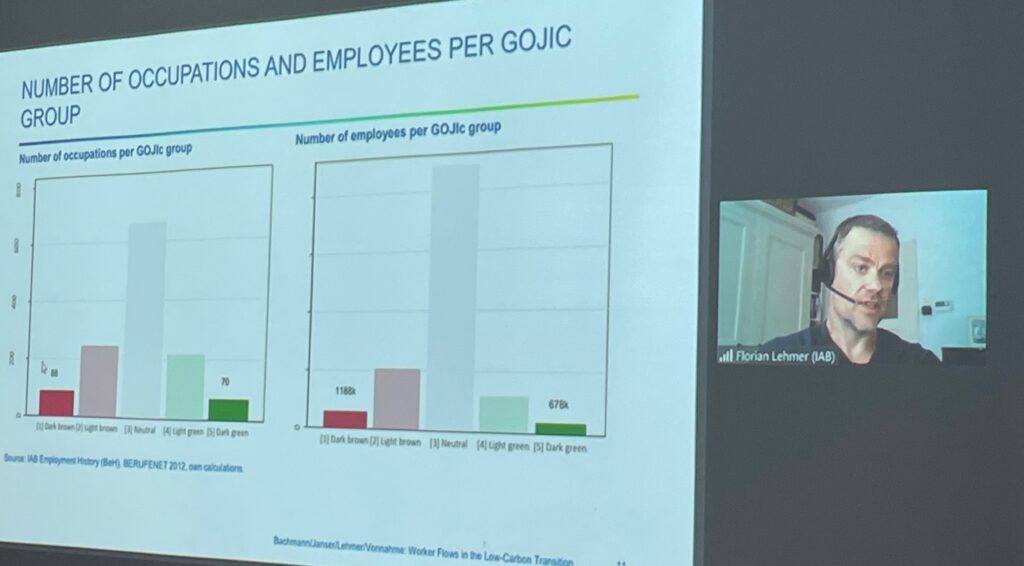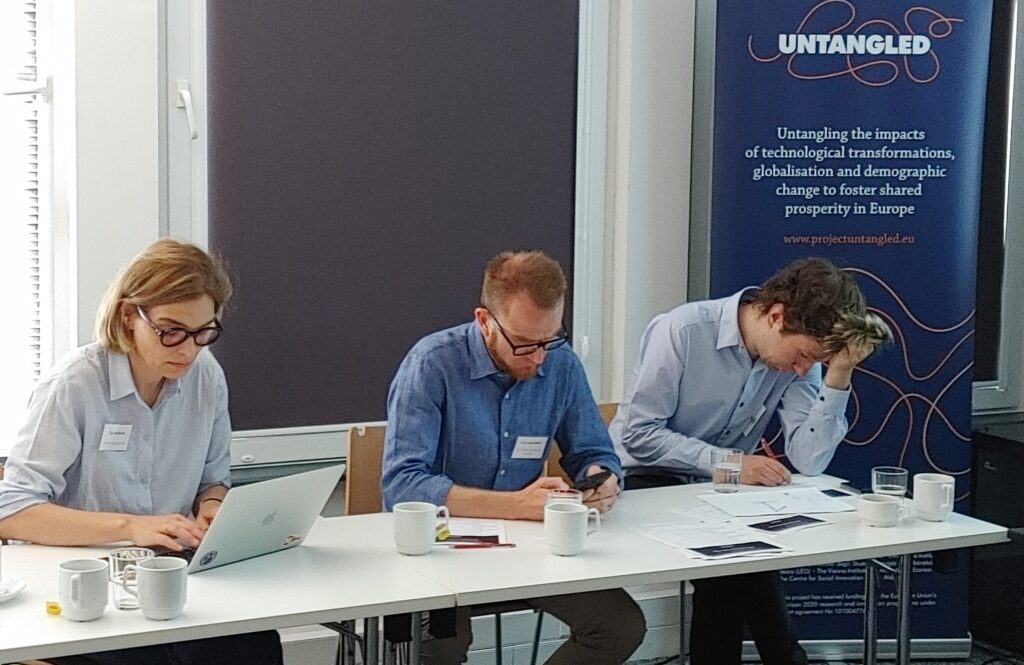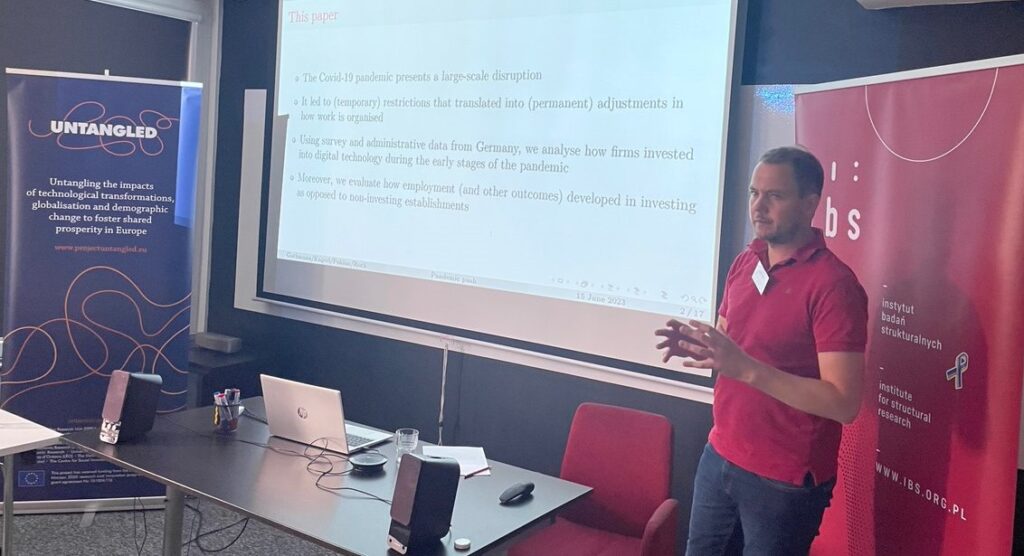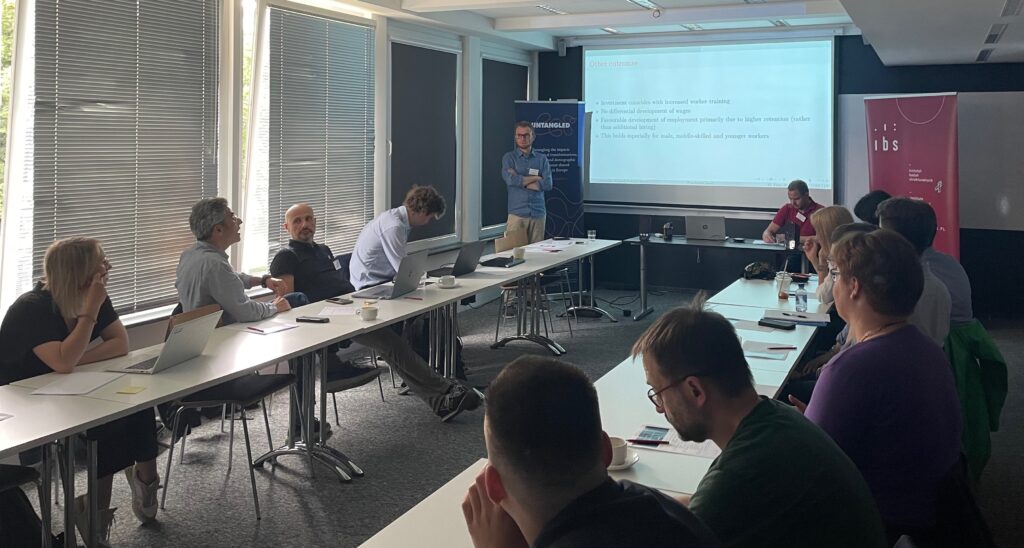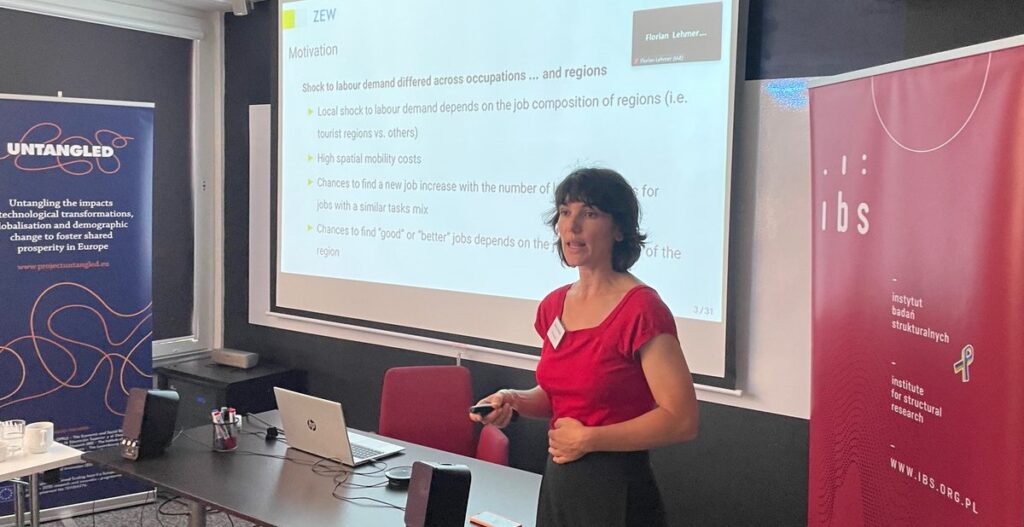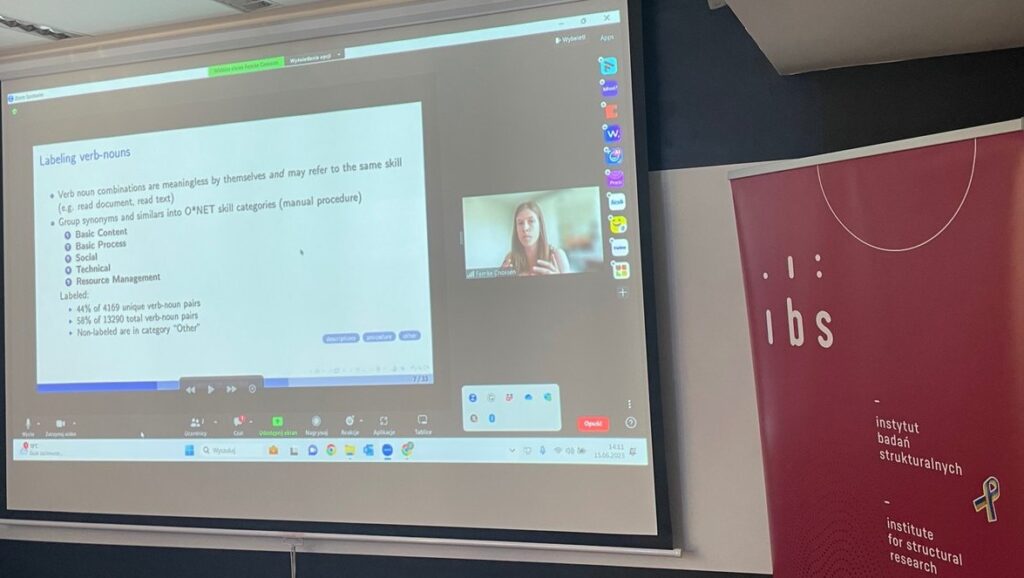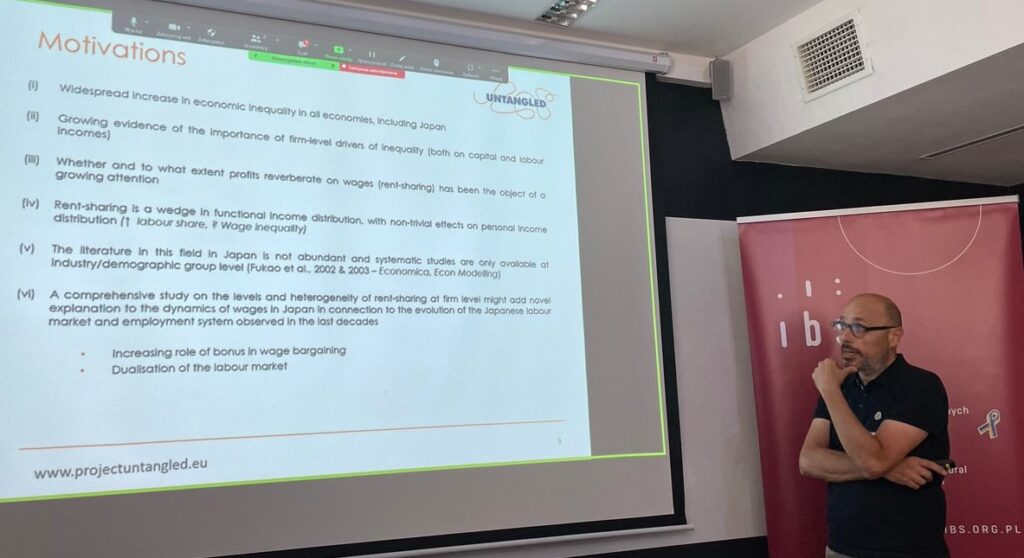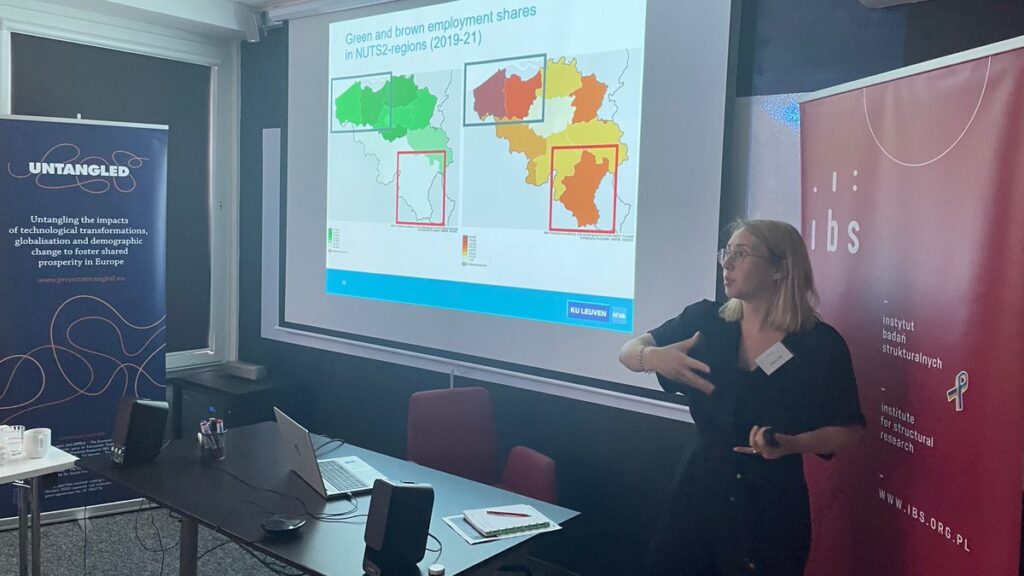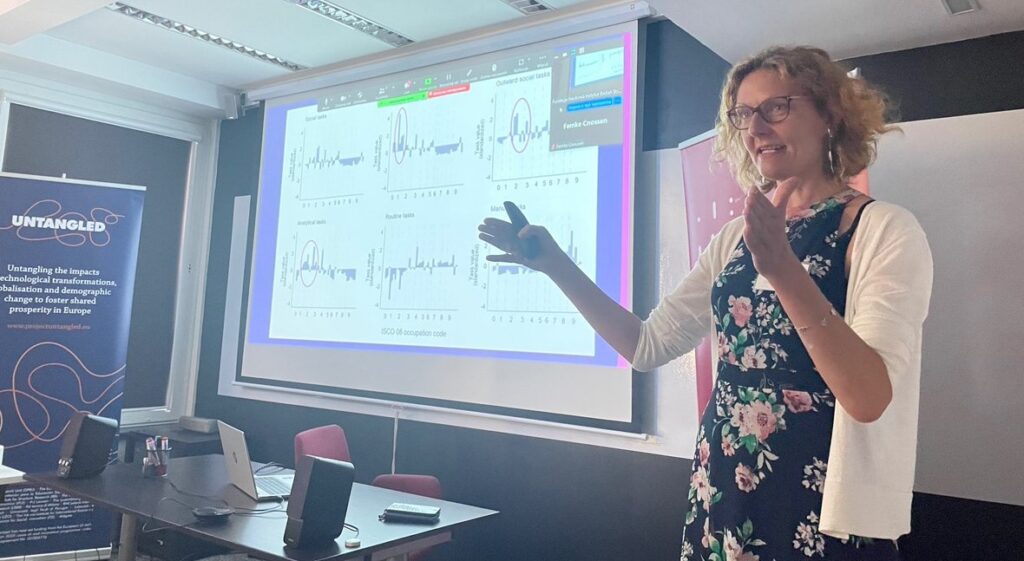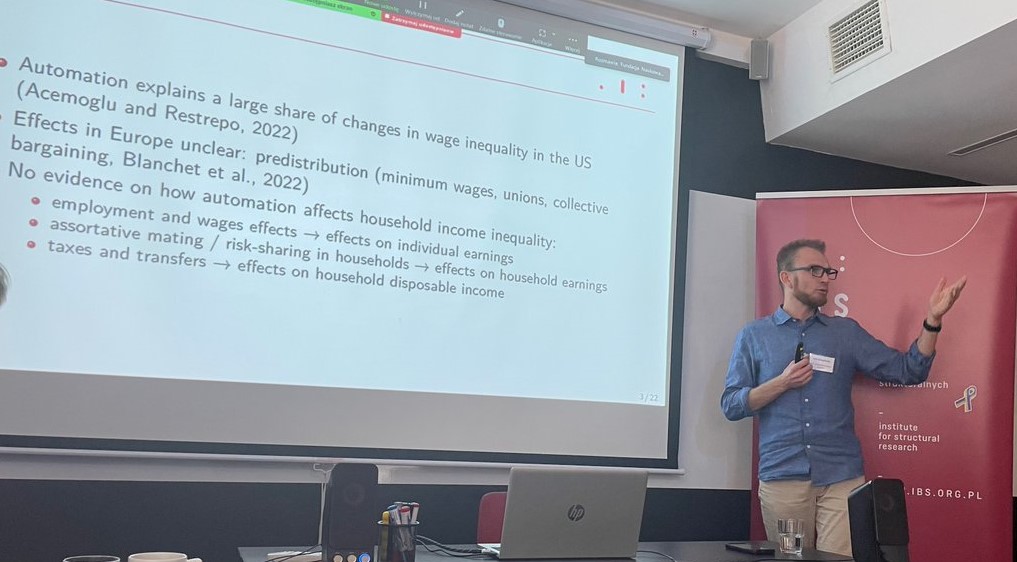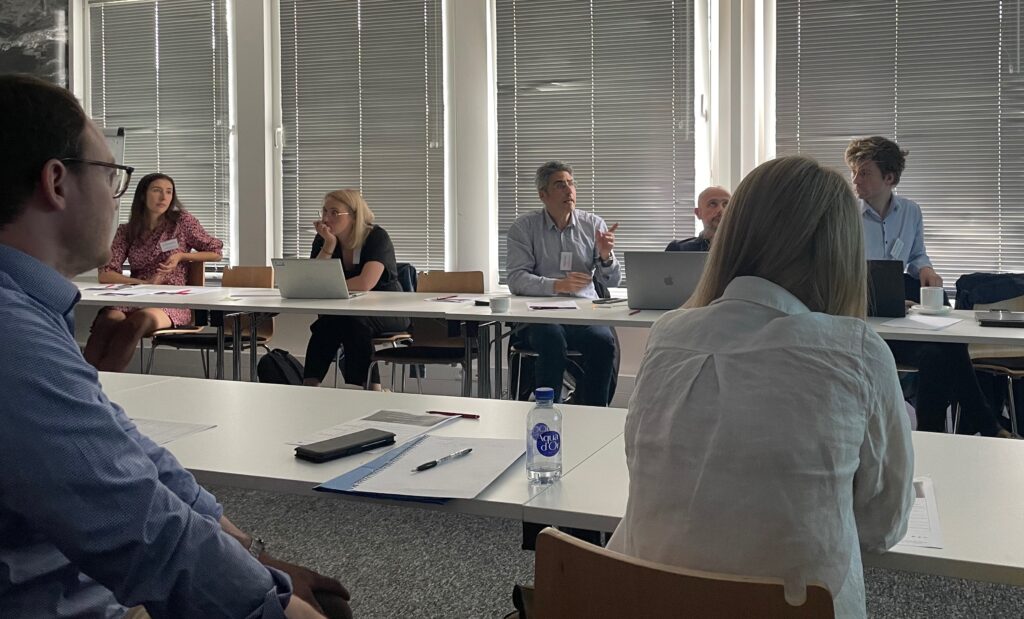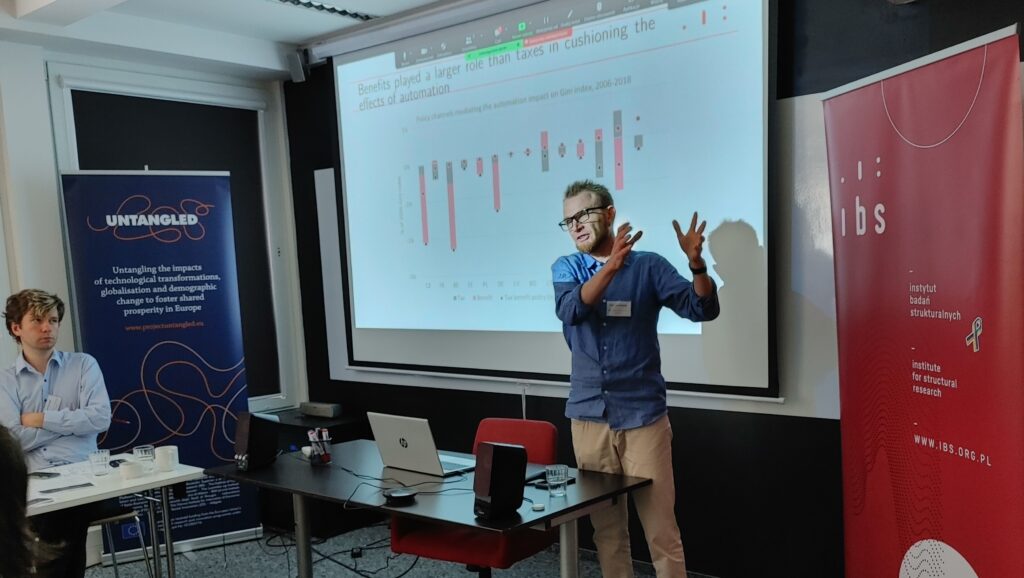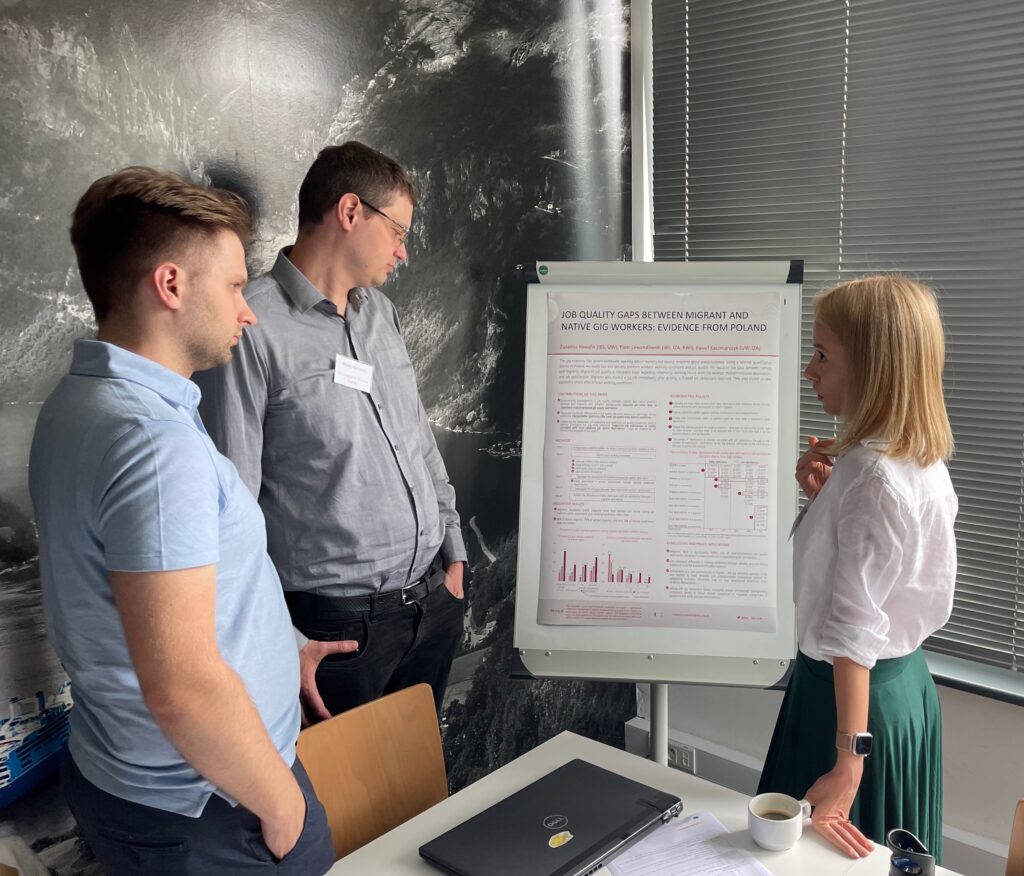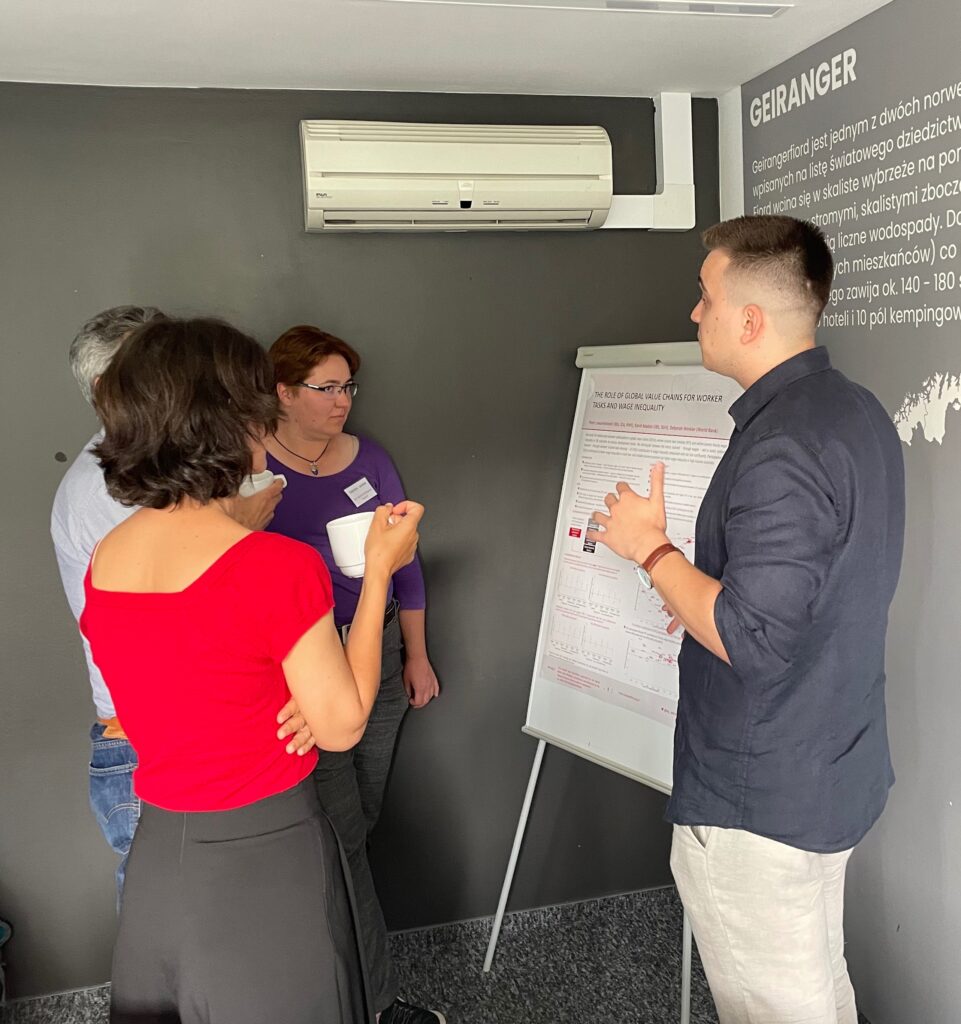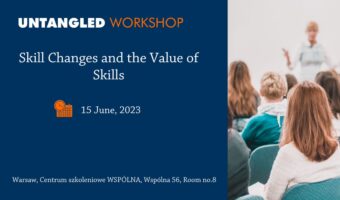The event was organised on 15 June in Warsaw, Poland, by UNTANGLED project partner, the Institute for Structural Research (IBS). It consisted of four sessions on the impact of technology on skills, labour flows, skills and inequalities. During the breaks, participants discussed with the authors of the four studies presented in the poster sessions. Honorata Bogusz (UW), Agnieszka Kasperska (UW), Zuzanna Kowalik and Karol Madon (IBS) are researchers at the beginning of their scientific path.
Untangled project research
A day dedicated to technological progress and skills was spent analysing issues such as:
– what the decline in routine tasks in Germany is due to,
– how the picture of the labour market and women’s wages is shaping up,
– what is the nature of the jobs women are taking on,
– how social and resource management skills are positively related to earnings.
Some speakers discussed the impact of the COVID-19 pandemic. We talked about the following:
– how the COVID-19 pandemic caused digital diffusion and
– how the pandemic affected job mobility.
Two articles focused on labour flows in the context of decarbonisation. Finally, the other two presentations dealt with inequalities.
In this part of the meeting, Piotr Lewandowski (IBS) spoke about the impact of automation on household income inequality in Europe. This study was conducted by the UNTANGLED project with Karina Doorley, Jan Gromadzki, Dora Tuda and Philippe Van Kerm. It turns out that robotisation increases wage inequality but has a negligible impact on household disposable income inequality. It turns out that household risk sharing and redistribution through tax benefit systems mitigate the negative effects of automation.
The meeting yielded valuable comments and insights from the assembled researchers. It presents the opportunity to develop and improve the resulting studies.
We look forward to the research results and the Untangled Project’s upcoming conference in Leuven in the autumn.
A detailed event description can be found on the UNTANGLED project website → here.
